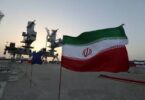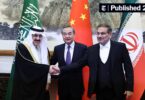The present government under the dynamic and intelligent leadership of Prime Minister Imran Khan has not only revived the dented relations with the United States by mending its ruptures and removing the trust deficit but took it to new heights to make it mutually beneficial. The open statement of President Donald Trump at public meeting in Ahmadabad describing relations with Pakistan as very good during his visit of India depicts return of warmth and cordiality in relations between the two countries.
US Secretary of Commerce Wilber Rose is visiting Islamabad to discuss ways and means of expanding bilateral trade. Pakistan’s trade with the United States is already in surplus as compared with the deficit of more than $12 billion deficit with China during the first phase of FTA. He will be holding a meeting with Advisor on Commerce, Textiles, Industry, Production and Investment AbdualRazzaqDaud. The USA Administration Official shall be apprised on the elevation of Pakistan’s position on the World Bank Ease of Doing Business Index from 147th to 108the ranking, which is entirely achieved by simplifying and fast-tracking regulatory procedures alone whereas other big impediments that vitiated the economic environment are yet to be addressed. There are indications that like the European Union Countries’ GSP Plus zero import duty facility for exports from Pakistan, duty free access to the US market may also come under discussion. If such opening is allowed, exports from Pakistan may grow appreciably if the negative role of vested interest is eliminated in decision making aimed to brring significant improvement in business environment to boost productivity of manufacturing sector.
The two sides will also discuss the recommendations to convene a session of the Trade and Investment Framework as early as possible. The US Secretary of Commerce is scheduled to meet the Prime Minister.
The outbreak of coronavirus and difficulties faced in its containment has brought Pakistan’s trade with its biggest trading partner almost to a halt. It has compelled the business leaders of textile industry to explore new sources of raw material import such as dyes and chemicals. The shipments that had already reached seaports were cleared after much delay causing demurrage charges. Moreover, shipments of more imports are stuck in the Chines seaports. Other South Asian countries like Taiwan is quoting 30-50p percent high price for these raw materials. Another cheap source of dyes and chemicals import is India with which restoration of trade relations at this point of time may not be possible due to prevailing tension on the LOC.
A prominent business leader ZubairMotiwala said that suspension of raw material import from China was hindering production activities in the exports oriented textile industry. If cost effective, the required dyes and chemical can be imported from the United States or subsidiary US Companies that run their enterprises in other countries where from raw material for textiles can be imported at relatively cheaper rates.
Not only in Pakistan but in European Countries and may be even in the United States buyers are reluctant to purchase Chines goods. It provides a window of opportunity to Pakistan to export value added goods to a number of developed countries provided the tariffs of energy inputs are immediately lowered by reining in the exploitative IPPs owners, reducing gas price, and quality of products is improved with application of innovation. High quality, low price and attractive products enhance the comparative advantage of value added items in the international market.
The objectives of exports led economic growth can be achieved only when a comprehensive long term industrial policy is put in place without further delay, including technology improvement, incentives of long term tax holiday, substantial reduction, if the prices of energy inputs, facilitating setting up industries of imports substitution, intermediate goods, strengthening the institutions of research and development and skill development. Pakistan can no longer afford massive trade deficits in the merchandise account because of shrinking economy due lack of long term industrial policy, which had been abandoned almost five decades ago.






